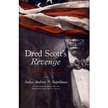How CS Lewis’ “The Lion, the Witch and the Wardrobe” helps demonstrate the deity of Jesus
In arguing for the deity of Jesus Christ (i.e., that he is, in fact, God), many Christians will point to places in the Gospel accounts where Jesus is referred to as the Son of God. For example,
And Peter answered him, “Lord, if it is you, command me to come to you on the water.” He said, “Come.” So Peter got out of the boat and walked on the water and came to Jesus. But when he saw the wind, he was afraid, and beginning to sink he cried out, “Lord, save me.” Jesus immediately reached out his hand and took hold of him, saying to him, “O you of little faith, why did you doubt?” And when they got into the boat, the wind ceased. And those in the boat worshiped him, saying, “Truly you are the Son of God.”
– Matthew 14:28-33 ESV
or, more specific to the point,
Pilate went out again and said to them, “See, I am bringing him out to you that you may know that I find no guilt in him.” So Jesus came out, wearing the crown of thorns and the purple robe. Pilate said to them, “Behold the man!” When the chief priests and the officers saw him, they cried out, “Crucify him, crucify him!” Pilate said to them, “Take him yourselves and crucify him, for I find no guilt in him.” The Jews answered him, “We have a law, and according to that law he ought to die because he has made himself the Son of God.”
– John 19:4-7 ESV
Yet, when presenting these apologetic arguments, many times Christians will face the response that Jesus never claimed to be God but merely ‘the son of God’.
This, I think, is an unfortunate consequence of our current culture’s thinking (and, perhaps, most of Western culture). The mindset we are facing, and most times have ourselves, tends to see individuals rather than groups. When we meet someone who is introduced as so-and-so’s son we think along the lines of, “Oh, your name is Frank, and you’re John’s son.” Is it any surprise, then, that we have instances of surnames such as “Johnson”?
We do this all the time. “Hello Mary. Yes, I know your mother Kate, and don’t you have a daughter named Rebecca?” In such a dialogue, despite understanding the familial relationship between the mother – daughter – granddaughter, we assign (inadvertently, perhaps) more importance to the individuality of each person. Hence, the argument that if Jesus is the Son of God, then he is God, carries little weight with us.
However, this does not seem to be the case with the culture with which Jesus interacted. Consider this excerpt from the book of John,
The Jews picked up stones again to stone him. Jesus answered them, “I have shown you many good works from the Father; for which of them are you going to stone me?” The Jews answered him, “It is not for a good work that we are going to stone you but for blasphemy, because you, being a man, make yourself God.” Jesus answered them, “Is it not written in your Law, ‘I said, you are gods’? If he called them gods to whom the word of God came—and Scripture cannot be broken—do you say of him whom the Father consecrated and sent into the world, ‘You are blaspheming,’ because I said, ‘I am the Son of God’? If I am not doing the works of my Father, then do not believe me; but if I do them, even though you do not believe me, believe the works, that you may know and understand that the Father is in me and I am in the Father.” Again they sought to arrest him, but he escaped from their hands.
– John 10:31-39 ESV
Here we see that the Jews were ready to stone Jesus because, as they stated, “you, being a man, make yourself God.” In his response Jesus actually takes their charge and clarifies it so as to make it clear that, yes, he is in fact making himself out to be God. Note his reference back to his saying, “I am the Son of God”.
So, how does this all tie in with CS Lewis, Narnia, and The Lion, the Witch and the Wardrobe?
At the beginning of chapter 2, just after the Faun (Mr. Tumnus) spots Lucy, we have the following,
“Good evening,” said Lucy. But the Faun was so busy picking up its parcels that at first it did not reply. When it had finished it made her a little bow.
“Good evening, good evening,” said the Faun. “Excuse me – I don’t want to be inquisitive – should I be right in thinking that you are a Daughter of Eve?”
“My name’s Lucy,” said she, not quite understanding him.
“But you are – forgive me – you are what they call a girl?” asked the Faun.
“Of course I’m a girl,” said Lucy.
“You are in fact Human?”
In these few short lines of text Lewis wonderfully parlays the aspects of cross-cultural issues in how we understand textual meaning. Notice how when the Faun asked “Are you a daughter of Eve?” he was asking if Lucy was “in fact Human”. Lucy, “not quite understanding him” (in true Western form), immediately looked to the individuality aspect of her status as the daughter of her mother – that they were two distinct, and therefore separate, persons. Luckily, the Faun understood this confusion on Lucy’s part and stepped her through the process, first by asking if she was “a girl”, and then asking his initial question in a point blank fashion: “You are in fact Human?”
The point here is that the title Daughter of Eve had nothing to do with the individuality of Lucy but everything to do with her being of the same species as Eve: Human. In like manner, when Jesus was referred to or claimed to be the Son of God it had everything to do with him being of the same “species” as his Father: God.




